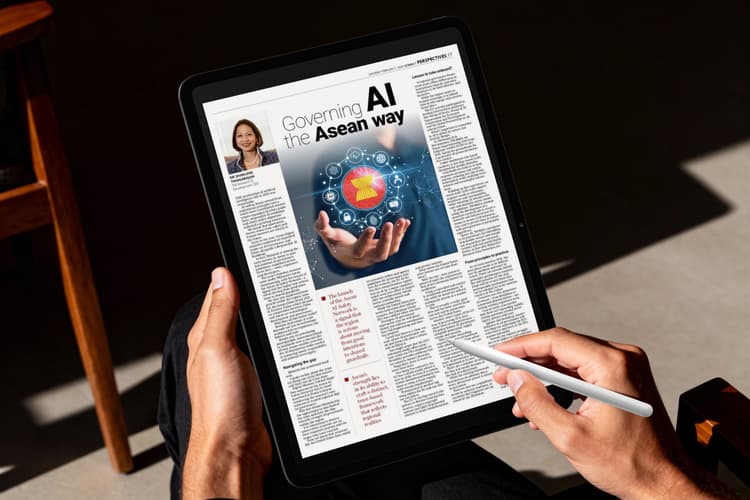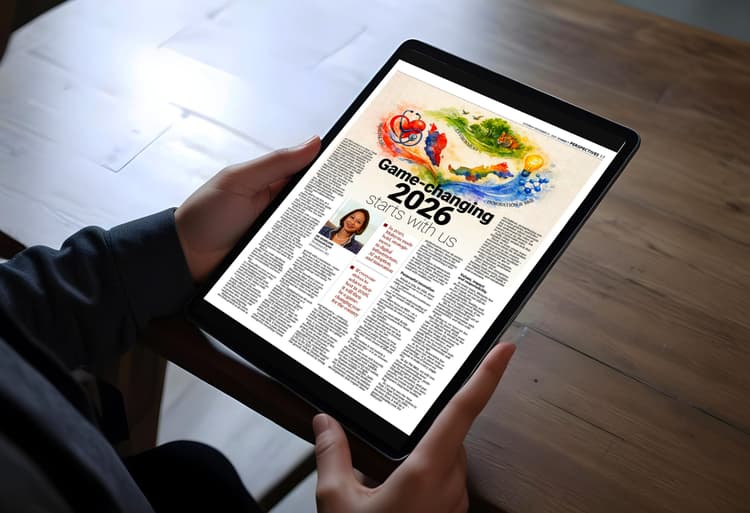Malaysia’s Path to Digital Independence

Malaysia’s path to digital independence
AS we approach Merdeka, there are so many achievements to be proud of. Historically, as the Union Jack flag went down and the Jalur Gemilang went up, no one could have imagined the progress we would make or just how far the nation would go.
Today, in this digital age, Merdeka has a new frontier. It’s not so much about who governs us, but what powers us.
Technological self-reliance has become a critical factor in every nation’s independence. True independence now means being free not just from foreign rules, but from foreign tools. It’s about building our tech, owning our data and charting a future where our digital backbone isn’t outsourced.
Malaysians abroad: Building the future – just not here
Let’s take a look at some globally renowned names.
Malaysian-born tech pioneer Datuk Pua Khein Seng, widely recognised as the founder of Phison Electronics Corporation was from Sekinchan, Selangor.
At 19, he left to pursue a degree in Taiwan. The intent was to return to Malaysia but he found unique innovation opportunities in Taiwan and stayed.
After founding the company in 2000 with four partners, it listed on the Taipei Exchange four years later.
The company is worth US$3.65bil. Imagine if we had that sort of company sitting on our shores. Factors such as market size, work culture and stronger talent pull from neighbouring countries were among the reasons Pua found greater success abroad. Still, the man who created the chips that made pen drives famous has not given up on the idea of replicating the business here.
Grab, today, the name has plenty to offer – car rides, food delivery, e-wallet, groceries and even insurance!
Founder Anthony Tan had a choice of whether to join the family business but with the entrepreneurial DNA in his blood, he decided to start GrabTeksi.
Tan did try to make it work in Malaysia but we all know he ended up in Singapore. Why? According to him, Singapore offered a more mature startup ecosystem, larger investment opportunities and a strategic position for Southeast Asia expansion.
The early days in Malaysia came with challenges such as industry resistance, complex operational requirements and safety concerns. His plan of action? Move to Singapore and rebrand it. Today, the company is publicly listed both in Malaysia and on the Nasdaq 500.
Is Malaysia a sleeping giant?
Let’s take a second to think about this. Saying that Malaysia has no talent or good startups is completely untrue.
We are not short on talent, but rather on enabling conditions.
Firstly, some roadblocks disproportionately affect startups and SMEs. One example is the many layers of regulatory and compliance requirements. From meeting electronic invoicing (e-invoicing) mandates to managing the SST and various tax frameworks, start-ups often find themselves balancing compliance needs with their innovation priorities.
Talent acquisition presents another significant hurdle. While the tech sector is inherently global, current visa and work permit processes can be time-consuming, making it challenging for start-ups to bring in international expertise. Streamlining these processes could help Malaysia compete more effectively with agile ecosystems in the region.
Funding is also critical for start-ups to gain a foothold in the market. There are government-backed grants and venture capital firms in Malaysia and while these are valuable, a more connected ecosystem where mentorship, networking and funding are linked seamlessly could help promising ventures scale faster.
Finally, there is potential to broaden policy focus. While large corporations often benefit from tech incentives and procurement opportunities, extending more targeted support to start-ups and SMEs could help turn great ideas into thriving businesses.
The fix starts here
Moving from problems to solutions, there are opportunities for Malaysia to strengthen its digital independence.
One key way forward is through smart public platforms, such as an e-health screening platform. Powered by AI-driven computer vision and physiological signal processing models, imagine if users could receive personalised, curated health diagnoses under 60 seconds!
What about smart mobility solutions that can keep track of things, think Waze but for an entire city? Powered by real-time data, such a platform could help prevent traffic congestion before it starts, enabling cities to move with purpose rather than chaos. And if we had advanced digital ID systems, we could cut the queues and retire the paperwork.
Why should we care when we already have these kind of apps and platforms? While relying on foreign digital platforms may bring short-term convenience, it can also mean long-term value – profits, user data and market influence flowing out of Malaysia.
The same applies to logistics. If most networks are foreign-controlled, local businesses may face higher costs and less flexibility while we miss out on strengthening our own supply chain resilience.
Take payment gateways, for example. Every transaction made through a foreign platform involves fees that accumulate into millions, if not billions, annually. This could otherwise support local fintech growth and banking innovation.
I strongly believe true national independence is no longer just about borders or flags, it’s about the ability to build and scale the future. It is time to break free from the cycle of inefficiency and dependency and come alive in the true spirit of Malaysia Boleh!
We need more than ambition. We need action. This means building an environment that invites experimentation and rewards innovation, crafting policies that empower not only large players but also startups, creators and technologists. And it demands incentives that make it more attractive to build locally than to exit early or move abroad.
Because here’s the truth: our brightest minds won’t wait around for bureaucracy to catch up. If we don’t give them the freedom and support to build here, they will build elsewhere.
Just as we once fought for the sovereignty of our land, we must now fight for the sovereignty of our ideas, our systems and our digital future.
Selamat Hari Merdeka everyone. Stay safe and be proud to buy Malaysian!
—–
This article was first published in the StarBiz 7, Issue Aug 30 2025: Healthcare reset is a quick fix, not a cure
PDF version, Click Here
To read the full Star epaper: Click here
You May Also Like


